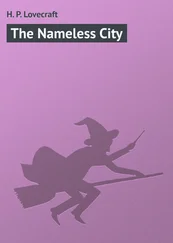Maurus Jokai - The Nameless Castle
Здесь есть возможность читать онлайн «Maurus Jokai - The Nameless Castle» весь текст электронной книги совершенно бесплатно (целиком полную версию без сокращений). В некоторых случаях можно слушать аудио, скачать через торрент в формате fb2 и присутствует краткое содержание. Город: New York, Год выпуска: 1898, Издательство: Doubleday, Page & Company, Жанр: Историческая проза, на английском языке. Описание произведения, (предисловие) а так же отзывы посетителей доступны на портале библиотеки ЛибКат.
- Название:The Nameless Castle
- Автор:
- Издательство:Doubleday, Page & Company
- Жанр:
- Год:1898
- Город:New York
- ISBN:нет данных
- Рейтинг книги:4 / 5. Голосов: 1
-
Избранное:Добавить в избранное
- Отзывы:
-
Ваша оценка:
- 80
- 1
- 2
- 3
- 4
- 5
The Nameless Castle: краткое содержание, описание и аннотация
Предлагаем к чтению аннотацию, описание, краткое содержание или предисловие (зависит от того, что написал сам автор книги «The Nameless Castle»). Если вы не нашли необходимую информацию о книге — напишите в комментариях, мы постараемся отыскать её.
The Nameless Castle — читать онлайн бесплатно полную книгу (весь текст) целиком
Ниже представлен текст книги, разбитый по страницам. Система сохранения места последней прочитанной страницы, позволяет с удобством читать онлайн бесплатно книгу «The Nameless Castle», без необходимости каждый раз заново искать на чём Вы остановились. Поставьте закладку, и сможете в любой момент перейти на страницу, на которой закончили чтение.
Интервал:
Закладка:
“Lisette?” interrupted Marie, excitedly. “Lisette, who was afraid to go near her own husband when he lay dying!”
“Well, what would you? Shall I send some one to nurse him?”
“No—no. I am the one to take care of him! He was a father to me. For my sake he was imprisoned, persecuted, buried alive all these years! And I am to let him die over yonder—alone, without a friend near him! No; I am going to him. That which your other daughter had the courage to do, this one also will do!”
“Marie! Think of Ludwig! Do you wish to drive him to despair?”
“God watches over us. He will do what is well for all of us!”
“Marie”—Katharina made a last effort to detain the young girl—“Marie, do you wish to go to Cambray to learn from him that I am the curse-laden creature who was sent after you to capture you and deliver you into the hands of your enemies?”
Marie turned at these desperate words, held out her hand, and said gently:
“And if he were to tell me that, Katharina, I should say to him that, instead of destroying me you liberated me, and instead of hating me you love me as I love you.”
She made as if she would kiss Katharina; but the excited woman turned away her face, and held toward Marie the letter Cambray had given her.
“Read this, and learn to know me as I am,” she said in a choking voice.
While Marie was reading the letter, Katharina covered her burning face with both hands; but they were gently drawn away and held in the young girl’s warm clasp, while she spoke:
“A reply must be sent to this letter, little mother. I shall say to her, through the soul now on the eve of departure to the better land where she dwells: ‘Little sister, your mother will wear the pure white garment, as you desired, in mourning for you. Instead of you, she will have me, and will love me, as I shall love her, in your stead. Bless us both, and be happy.’ Shall I not send this message to your Amélie with my good friend Cambray?”
“Go, then; go—go,” convulsively sobbed Katharina, and fell upon her face on the floor as Marie hastened from the pavilion.
CHAPTER III
When her grief had exhausted itself, Katharina stole back to the manor, where she removed the steel casket from its hiding-place, wrapped it in her shawl, and, passing noiselessly and unseen down a staircase that was rarely used, crossed the park to the farmer’s cottage.
Here she told the farmer’s wife that she was going to play a trick on her betrothed, that she wanted to borrow a gown and a kerchief. She bade the farmer saddle the mule which his wife rode when she went to the village, and to hang the hampers, as usual, from the pommel. In one of these she placed the steel casket, in the other a pistol, and filled them both with all sorts of provisions. Thus disguised, she mounted the quadruped, and set out alone on her way toward the camp.
Almost at the same moment that Ludwig Vavel had learned of the deceit of the woman he loved, he became convinced that his ambitious designs had come to naught. The rising of the German patriots against Napoleon had ended in their defeat, and not a trace was left of the uprising among the French people themselves.
It was the third day after the battle of Aspern when Master Matyas entered Count Vavel’s tent.
The jack of all trades had proved himself a useful member of the army—not, indeed, where there was any fighting, for he much preferred looking on, when a battle was in progress, to taking an active part in the fray. But as a spy he was invaluable.
“I have seen everything,” he announced. “I saw the balloon in which a French engineer made an ascent to the clouds, to reconnoiter the Austrian camp. He went up as high as a kite, and they held on to the rope below, down which he sent his messages—observations of the Austrians’ movements. I saw the bridge, which is two hundred and forty fathoms long, which can be transported from place to place, and reaches from one bank of the Danube to the other. And I saw that demi-god flying on his white horse. He was pale, and trembled.”
“And how came you to see all these sights, Master Matyas?” interrupted Vavel.
“I allowed the Frenchmen to capture me; then I was set to work in the intrenchments with the other prisoners.”
“And did you manage to deliver my letter?”
“Oh, yes. The Philadelphians are easily recognized from the silver arrow they wear in their ears. When I whispered the password to one of them, he gave it back to me, whereupon I handed him your letter. I came away as soon as he brought me the answer. Here it is.”
This letter by no means lightened Vavel’s gloomy mood. Colonel Oudet, the secret chief of the Philadelphians in the French army, heartily thanked Count Vavel for his offer of assistance to overthrow Napoleon; but he also gave the count to understand that, were Bonaparte defeated, the republic would be restored to France. In this case, what would become of Vavel’s cherished plans?
It was after midnight. The pole of “Charles’s Wain” in the heavens stood upward. Ludwig approached the watch-fire, and told the lieutenant on guard that he might go to his tent, that he, Vavel, would take his place for the remainder of the night. Then he let the reins drop on the neck of his horse, and while the beast grazed on the luxuriant grass, his rider, with his carbine resting in the hollow of his arm, continued the night watch. The night was very still; the air was filled with odorous exhalations, which rose from the earth after the shower in the early part of the evening. From time to time a shooting star sped on its course across the sky.
One after the other, Ludwig Vavel read the two letters he carried in his breast. He did not need to take them from their hiding-place in order to read them. He knew the contents by heart—every word. One of them was a love-letter he had received from his betrothed; the other was the Judas message of his enemy and Marie’s.
At one time he would read the love-letter first; then that of the arch-plotter. Again, he would change the order of perusal, and test the different sensations—the bitter after the sweet, the sweet after the bitter.
Suddenly, through the silence of the night, he heard the distant tinkle of a mule-bell. It came nearer and nearer. He heard the outpost’s “Halt! Who comes there?” and heard the pleasant-voiced response: “Good evening, friend. God bless you.”
“Ah!” muttered Ludwig, with a scornful smile, “my beautiful bride is sending another supply of dainties. How much she thinks of me!”
The mule-bell came nearer and nearer.
By the light of the watch-fire Vavel could see the familiar red kerchief the farmer’s wife from the manor was wont to wear over her head. The mule came directly toward the watch-fire, and stopped when close to Vavel’s horse. The woman riding the beast slipped quickly to the ground, emptied the provisions from the hampers, then, lifting the object which had been concealed in the bottom of one of them, came around to Vavel’s side, saying:
“It is I. I have come to seek you.”
“Who is it?” he demanded sternly, recognizing the voice; “Katharina or Themire?”
“Katharina—Katharina; it is Katharina,” stammered the trembling woman, looking pleadingly up into his forbidding face.
“And why have you come here?”
“I came to bring you this,” she replied, holding toward him the steel casket.
“Where is Marie?”
“She is safe—with the Marquis d’Avoncourt.”
“What?” exclaimed Vavel, in amazement, flinging his carbine on the ground. “Cambray—d’Avoncourt— here? ”
“Yes; he is at the Nameless Castle, and Marie is with him.”
“After all, there is a God in heaven!” with deep-toned thankfulness ejaculated Ludwig. Then he added: “Oh, Katharina, how I have suffered because of—Themire!”
Читать дальшеИнтервал:
Закладка:
Похожие книги на «The Nameless Castle»
Представляем Вашему вниманию похожие книги на «The Nameless Castle» списком для выбора. Мы отобрали схожую по названию и смыслу литературу в надежде предоставить читателям больше вариантов отыскать новые, интересные, ещё непрочитанные произведения.
Обсуждение, отзывы о книге «The Nameless Castle» и просто собственные мнения читателей. Оставьте ваши комментарии, напишите, что Вы думаете о произведении, его смысле или главных героях. Укажите что конкретно понравилось, а что нет, и почему Вы так считаете.












